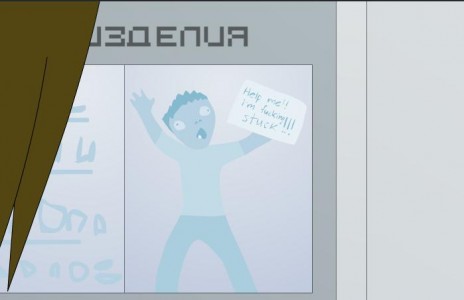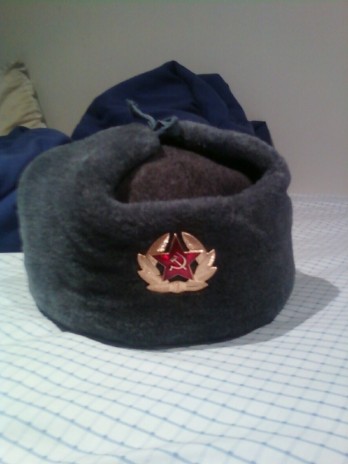C O N F I D E N T I A L SECTION 01 OF 03 MOSCOW 002688
SIPDIS
EO 12958 DECL: 10/26/2019
TAGS PGOV, PHUM, KDEM, RS
SUBJECT: IS STALIN'S GHOST A THREAT TO ACADEMIC FREEDOM?
REF: A) MOSCOW 2586 B) MOSCOW 1349
Classified By: Pol Min Counselor Susan Elliott for reason 1.4 (d)
¶1. (C) Summary: Efforts to sanitize Stalin's role in Soviet history may be potentially damaging to academic freedom and linked to GOR efforts to increase authoritarian rule. Although some recent incidents have caused concern among human rights monitors, thus far GOR efforts to enlist academics to help oppose "falsification of history" have not been strongly enforced. GOR rhetoric on the subject appears largely aimed at scoring political points in arguments with foreign countries. End Summary.
Stalin's ghost haunts the Metro
-------------------------------
¶2. (SBU) The specter of Joseph Stalin continues to haunt post-Soviet Russia, as the GOR and average Russians alike struggle to reconcile their pride in past Soviet glories with the harsh fact that the Soviet system, especially under Stalin, destroyed the lives of millions of its citizens. This uneasy and ambivalent relationship with the past is further complicated by a GOR policy of occasionally exploiting nationalistic emotions about Soviet history -- especially the Soviet victory over the Nazis -- to buttress support for its own, modern brand of authoritarianism (ref A). The latest dispute flared up after Moscow City Hall announced on October 27 that it would add Lenin's name to artwork in the Kurskaya Metro station which, since August, has carried a restored verse from the 1944 version of the Soviet anthem praising Stalin. Moscow's chief architect, Aleksandr Kuzmin, told local media that he wanted to "return Kurskaya to its original appearance," which would include a monument to Stalin. An article in the daily Komsomolskaya Pravda, a paper not always known for liberal opposition, noted wryly that if the goal was to return things to their original appearance, it might be necessary to blanket the entire city with Stalin's image, as authorities had done during the height of Stalin's totalitarian reign of terror. Moscow Mayor Yuriy Luzhkov told Interfax October 28 that the city had no intention of placing a Stalin statue in the Metro, and the Moscow Patriarchate criticized the idea of "Stalinist symbols" in the Metro, calling it "divisive."
Academic freedom under threat?
------------------------------
¶3. (C) GOR efforts to sanitize Soviet history have continued throughout the year, and have the potential to reach into numerous walks of life and hence to encroach upon academic freedom. In May, the Kremlin announced that it had formed a "Commission to Oppose Historical Falsification," and its state Duma supporters introduced legislation to defend Russia's honor in any discussion of World War II and the subsequent creation of the Soviet Union (ref B). Less than a month later, in June, XXXXXXXXXXXX leaked to us an email allegedly from V.A. Tishkov, the Chief of the History Section of RAN, politely "requesting" all faculty to present him with information in connection with the GOR's May announcement. The information requested included a list of sources of possible "falsification" in their field of study, and information about activity among their students promoting the spread of "falsification" or of "concepts damaging to Russia's interests." More recently, on October 14, the Moscow Times reported that the German government had written a letter to President Medvedev complaining about an investigation into an Arkhangelsk historian, Mikhail Suprun, for "violating privacy rights" by researching deportations of Soviet Germans under Stalin. The police official who gave Suprun access to the archives is also accused of "abuse of office," while Suprun could receive up to four years in prison, and has had what he called "a lifetime's work" on computers and research data confiscated by the Federal Security Service (FSB).
¶4. (C) XXXXXXXXXXXX told us that she personally knew professors at academic institutions in Moscow who had received such memos during the summer, including memos asking them to "identify falsifiers." She added that the Foreign Intelligence Service also has a presence at RAN. Discussing this potentially disturbing trend, XXXXXXXXXXXX also alluded to the "unpleasant rewrites" found in officially sanctioned textbooks which whitewash Stalin's role in the country's history. While acknowledging the existence of "a broad variety" of history books (approximately 24 schoolbooks on history are available in bookstores), XXXXXXXXXXXX noted that the official version outnumbers the others by 250,000 books to approximately 10-15,000. Furthermore, in Russia as in the U.S., parents do not buy their children's history books, but rather the schools order them, which XXXXXXXXXXXX said makes the
MOSCOW 00002688 002 OF 003
choice "pre-determined." On October 24, the liberal Daily Journal reported the release of the latest in a long line of history textbooks rehabilitating Stalin; this one, ironically produced by the "Enlightenment" publishing company, denies the existence of totalitarianism in the USSR. The article noted that every time someone brings up the topic of history, it engendered a furious on-line debate.
¶6. (C) XXXXXXXXXXXX told us that a "virtual war" has flared up between pro-Kremlin and anti-Kremlin bloggers every time someone published papers on the Internet that they received from state archives 15 years ago detailing Soviet human rights abuses. The papers date back 15 years, XXXXXXXXXXXX explained, because now, "as in Soviet times," people need to complete special applications to receive permission to read such documents. A brief window opened after the fall of the Soviet Union, and just as quickly closed again.
The past is not dead; it is not even past
--------------------------------------
---
¶7. (C) For XXXXXXXXXXXX, such debates tell as much about the present as they do about the past. He believes that the GOR is "trying to create a newly obedient society," which "as in Orwell," only knows history from a standpoint beneficial to the authorities. According to XXXXXXXXXXXX, "when the power structure talks about falsification, they are simply attempting to hide part of history." He added that knowledge of the real history carries significant power. He was struck by the "shock" of people who learned historical facts, because "sometimes just one fact can overturn a person's whole world view." For example, XXXXXXXXXXXX daughter, who studied in the USSR and teaches history in high school, upon learning that XXXXXXXXXXXX grandfather had been killed in the 1937 purges, talked of little else for several years afterward. According to XXXXXXXXXXX, "the Kremlin fears people learning about past atrocities and crimes," and hence "tries to manipulate people's consciousness." XXXXXXXXXXX added that he understands the GOR's policy, because "if people knew the extent of Soviet crimes," the Kremlin would not be able to control the populace. XXXXXXXXXXXX expressed a similar view, saying that the GOR prefers to present itself as "infallible, making only correct decisions," and that discussions about Stalin's misdeeds might lead to unwanted questions for today's government.
¶8. (C) XXXXXXXXXXX said he suspected that at least some of the pro-Kremlin bloggers who participate in these historical debates were professionals in the pay of the GOR (and perhaps special services). This notion may not be so far-fetched. On October 21, Interfax reported that a supposedly private citizen named Mikhail Baranov had launched an Internet portal called "Runivers" to fight "falsification of history" by creating a historical and cultural electronic encyclopedia and library. The article describes Baranov's organization as "non-commercial," and does not indicate from where -- during these economically tight times -- it receives its funding. However, a State Duma deputy who is a member of the Runivers board, Vladimir Medinskiy, lamented to Interfax that "Russia does not have an institution that would be dealing in historical propaganda, which is why we are losing in the war aimed to falsify Russian history."
A "wink" is the easiest response to GOR directives
--------------------------------------
------- -----
¶9. (C) The fact that Russia currently lacks such a "historical propaganda" institution has thus far prevented any widespread attacks on academic freedom in the name of "anti-falsification." XXXXXXXXXXXX, told us October 27 that he had heard no reports from any of his MGU colleagues of any pressure on them to present teaching materials or name names in order to ferret out "falsification." He attributed this at least in part to the fact that, in contrast to neighboring Belarus, Russia has no Ideological Department which examines all teaching materials in schools and universities. XXXXXXXXXXXX also cautioned against leaping to Orwellian conclusions, reminding us not to "underestimate the cynicism" involved in administrative requests like the one at RAN. "Everyone knows how to take such requests," she said; the request from the government is "ugly," but unlike in Soviet times, when professors all depended upon the government for their currently there is no way to enforce such decrees. As a result, according to XXXXXXXXXXXX, "people wink"; the administrators, while passing along the government's request, make it clear to their subordinates that they themselves do not support it. XXXXXXXXXXXX pointed out that many historians may be outraged at the government's heavy-handedness and its "real falsification of history," but they don't see themselves as a unified force.
MOSCOW 00002688 003 OF 003
The simplest response is to use the power of inertia, and to stonewall passively.
Goal of GOR rhetoric: score political points at home
--------------------------------------
------- -------
¶10. (C) For the GOR's part, it held a session of its Commission during the summer, and its director claimed that participants were "not here to censor, but simply to oppose" perceived attempts by other countries to gain at Russia's expense on the geopolitical scene. Although the stated focus is on international disputes, the GOR's primary audience for its hardline stance is domestic. Rhetoric defending Russia's honor on the international stage scores easy political points for the GOR at home. (Note: This occasionally results in some fancy footwork, as when Putin visited Poland on the anniversary of the Molotov-Ribbentrop Pact, and wrote a conciliatory article for his Polish audience, which -- according to Lipman, by GOR design -- received scant coverage in Russian media. End Note.) As XXXXXXXXXXXX said, "there is a lot of vagueness about the past, but World War II is the one thing everyone in Russia accepts, both liberal and conservative; the narrative is that Germany attacked, and we won." That Stalin continues to have a following, 56 years after his death, is undeniable. After Aleksandr Prokhanov, editor-in-chief of the ultranationalist paper Zavtra, praised Stalin on the "Honest Monday" political talk show on Gazprom-owned NTV, television audience members were invited to phone in their opinions. Of those who participated, 61 percent called Stalin a hero, 32 percent an enemy, and 7 percent "a great, effective manager."
Comment
-------
¶11. (C) Recent reports of the death of academic freedom in Russia are greatly exaggerated. GOR leaders have shown that they are willing to adopt nationalistic postures when it buttresses their popular support, but attempts to dictate academic terms thus far appear half-hearted. The GOR is no doubt telling the truth when it claims to place greater focus on external quarrels about its past than on domestic debates. It is undeniable that nationalists continue to link Russia's past greatness with its past political system, which showed disdain for the value of individual human life and for freedom of expression, and that this approach places these fundamental freedoms under threat. However, there remain enough Russians both in and out of the government who question the nationalists' logic and strive to keep the memory of Stalin's victims alive. In the meantime, the GOR occasionally remembers to name a street after Aleksandr Solzhenitsyn just to make sure that nobody confuses them with the Soviets. When discussing this issue, Russians frequently refer to the poet Anna Akhmatova, who, when Khrushchev opened the doors to Stalin's prisons, wrote that the half of Russia who had imprisoned the other half would now come face to face with its victims. Since according to a recent Levada poll, 27 percent of current Russians have relatives who perished under Stalin's rule, that "other half" is not going away any time soon. Beyrle






